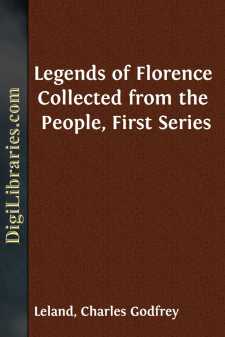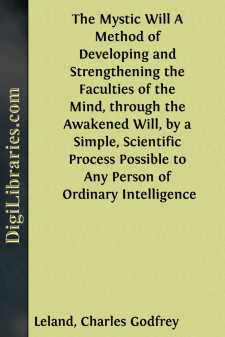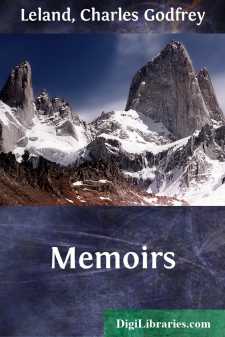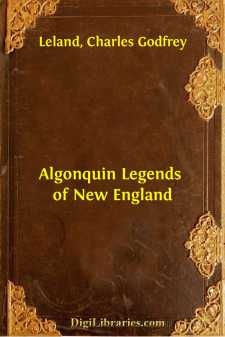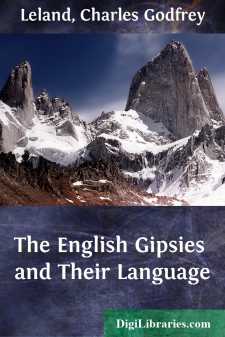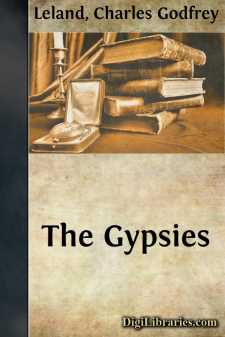Categories
- Antiques & Collectibles 13
- Architecture 36
- Art 48
- Bibles 22
- Biography & Autobiography 813
- Body, Mind & Spirit 142
- Business & Economics 28
- Children's Books 17
- Children's Fiction 14
- Computers 4
- Cooking 94
- Crafts & Hobbies 4
- Drama 346
- Education 46
- Family & Relationships 57
- Fiction 11829
- Games 19
- Gardening 17
- Health & Fitness 34
- History 1377
- House & Home 1
- Humor 147
- Juvenile Fiction 1873
- Juvenile Nonfiction 202
- Language Arts & Disciplines 88
- Law 16
- Literary Collections 686
- Literary Criticism 179
- Mathematics 13
- Medical 41
- Music 40
- Nature 179
- Non-Classifiable 1768
- Performing Arts 7
- Periodicals 1453
- Philosophy 64
- Photography 2
- Poetry 896
- Political Science 203
- Psychology 42
- Reference 154
- Religion 513
- Science 126
- Self-Help 84
- Social Science 81
- Sports & Recreation 34
- Study Aids 3
- Technology & Engineering 59
- Transportation 23
- Travel 463
- True Crime 29
Charles Godfrey Leland
Charles Godfrey Leland (1824–1903) was an American humorist, folklorist, and writer best known for his books on folklore, including "Aradia, or the Gospel of the Witches." He made significant contributions to the study of European folklore and occult traditions, particularly through his collection and publication of Italian witchcraft traditions. Leland also created the comic character Hans Breitmann, whose adventures in verse became popular in 19th-century America.
Author's Books:
Sort by:
PREFACE This book consists almost entirely of legends or traditions of a varied character, referring to places and buildings in Florence, such as the Cathedral and Campanile, the Signoria, the Bargello, the different city gates, ancient towers and bridges, palaces, crosses, and fountains, noted corners, odd by-ways, and many churches. To all of these there are tales, or at least anecdotes attached,...
more...
"Unto many Fortune comes while sleeping."—Latin Proverb. "Few know what is really going on in the world."—American Proverb. It is but a few years since it suddenly struck the gay world of comic dramatists and other literary wits, that the Nineteenth Century was drawing to an end, and regarding it as an event they began to make merry over it, at first in Paris, and then...
more...
It happened once in Boston, in the year 1861 or 1862, that I was at a dinner of the Atlantic Club, such as was held every Saturday, when the question was raised as to whether any man had ever written a complete and candid autobiography. Emerson, who was seated by me at the right, suggested the “Confessions” of Rousseau. I objected that it was full of untruths, and that for plain candour it was...
more...
When I began, in the summer of 1882, to collect among the Passamaquoddy Indians at Campobello, New Brunswick, their traditions and folk-lore, I expected to find very little indeed. These Indians, few in number, surrounded by white people, and thoroughly converted to Roman Catholicism, promised but scanty remains of heathenism. What was my amazement, however, at discovering, day by day, that there...
more...
CHAPTER I. INTRODUCTORY. The Rommany of the Roads.—The Secret of Vagabond Life in England.—Its peculiar and thoroughly hidden Nature.—Gipsy Character and the Causes which formed it.—Moral Results of hungry Marauding.—Gipsy ideas of Religion. The Scripture story of the Seven Whistlers.—The Baker’s Daughter.—Difficulties of acquiring Rommany.—The Fable of the Cat.—The Chinese, the...
more...
PREFACE. The reader will find in this book sketches of experiences among gypsies of different nations by one who speaks their language and is conversant with their ways. These embrace descriptions of the justly famed musical gypsies of St. Petersburg and Moscow, by whom the writer was received literally as a brother; of the Austrian gypsies, especially those composing the first Romany orchestra of...
more...


